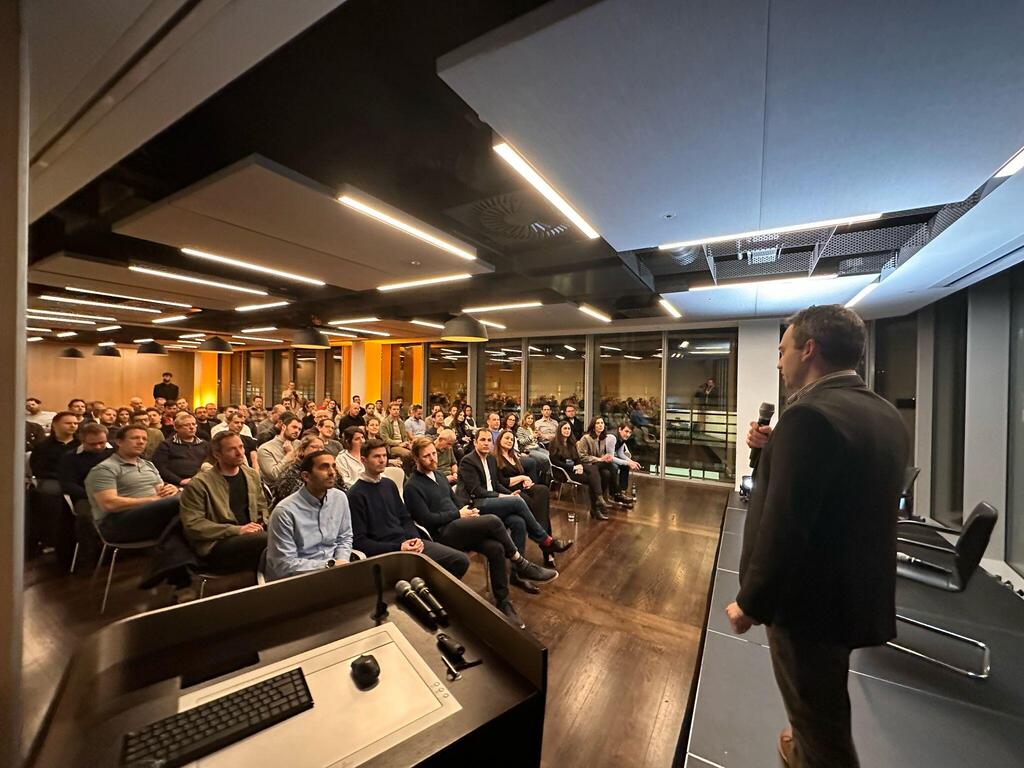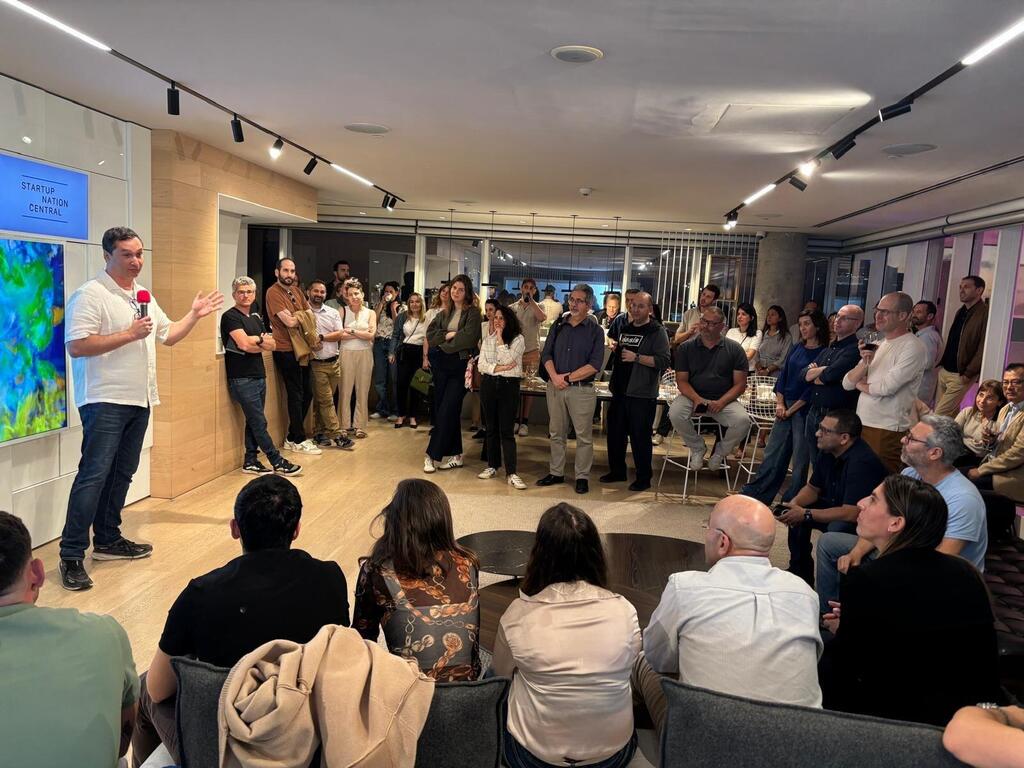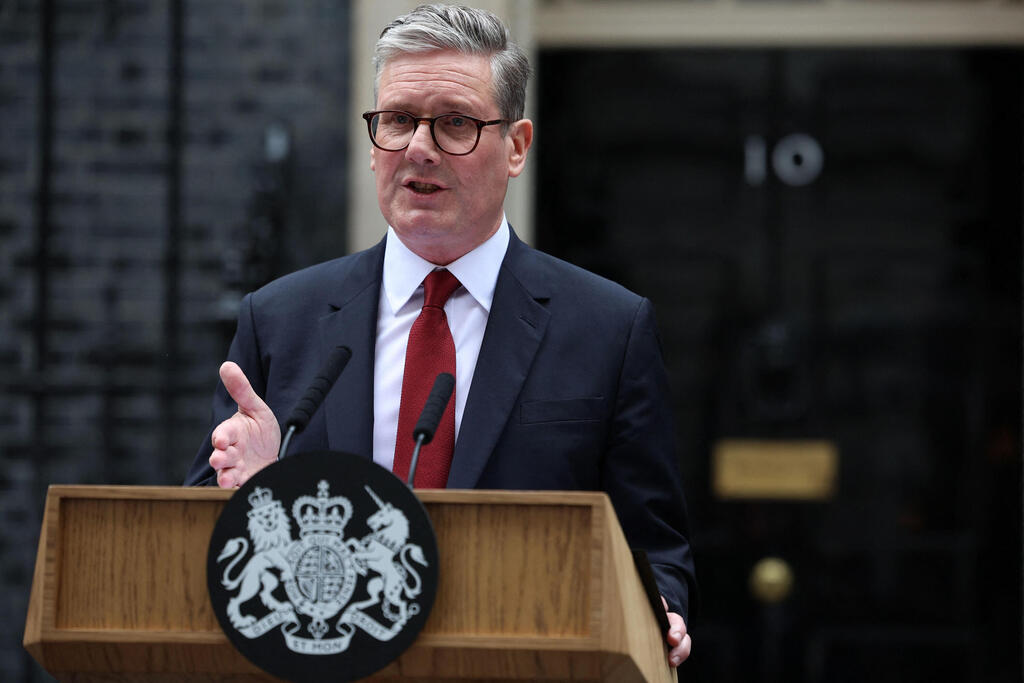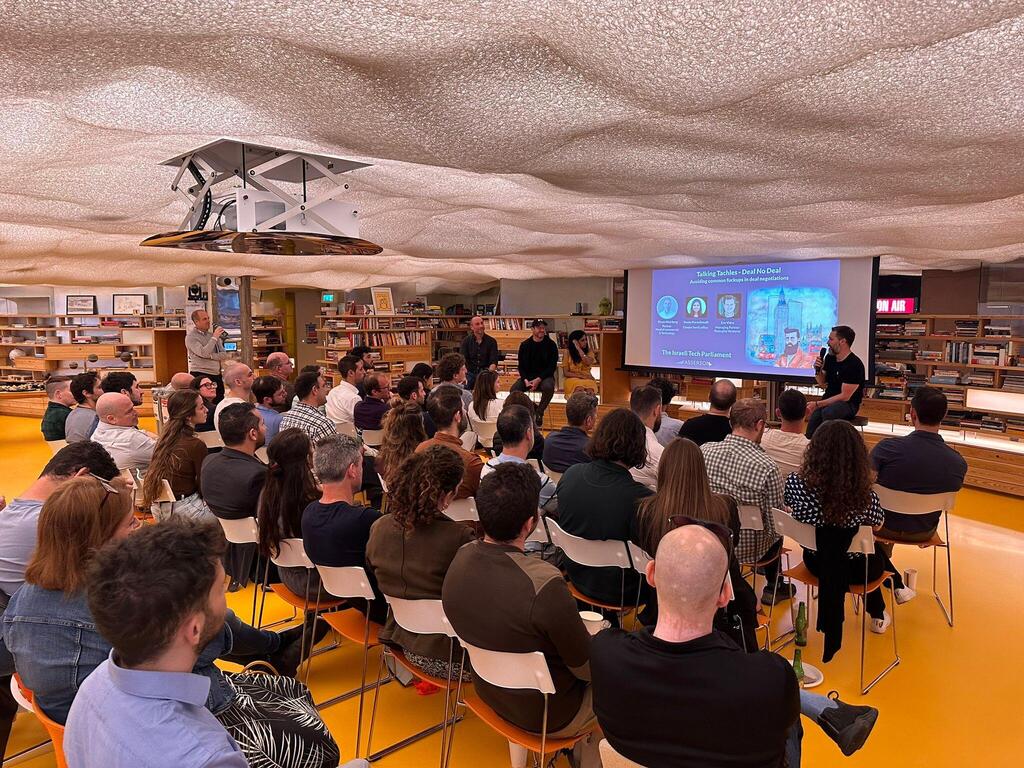As political tensions between the UK and Israel reach new highs—with Britain recently imposing sanctions on Finance Minister Bezalel Smotrich and National Security Minister Itamar Ben-Gvir, and growing speculation about the potential suspension of bilateral trade agreements—there’s another story playing out beneath the headlines.
It’s one of quiet cooperation, community and resilience. And it’s happening in London.
Meet the Israeli Tech Parliament (ITP)—a volunteer-led network of around 3,000 Israeli professionals operating at the heart of the UK’s tech economy. While official relations between Downing Street and Jerusalem may be under strain, this thriving diaspora of founders, investors, engineers and executives is helping deepen the human and economic ties between the two nations.
“Politics may be unpredictable, but what we’re building here is long-term,” says co-founder and community lead David Fogel.
“We’re showing that people-to-people diplomacy—through tech, entrepreneurship, and shared ambition—still works.”
From grassroots to growth engine
Founded in 2014 by a small group of Israeli expats looking to connect over coffee and code, ITP has grown into a full-blown ecosystem. Its members include senior leaders at Google, Meta, Amazon and Microsoft; alumni of elite Israeli units like 8200; and a wave of young entrepreneurs founding companies across fintech, AI, healthtech and climate innovation.
More than just networking, ITP has become a platform for real economic value creation. Member startups have collectively raised over $1 billion in venture capital, created thousands of jobs and helped drive over £1.5 billion in M&A activity across Europe.
Their events—hosted by partners like Google, Amazon, Monzo, the Financial Times, Gett and Octopus Ventures—bring together hundreds of participants for evenings of content, mentoring and candid conversation.
Recent sessions have covered everything from scaling B2B SaaS post-Brexit, to navigating mental health in startup life, to decoding AI regulation in the EU. Each event is volunteer-organized, free to attend, and community-first.
The political elephant in the room
ITP’s momentum contrasts sharply with headlines from Westminster and Whitehall. Earlier this year, the UK became the first European country to impose individual sanctions on Israeli ministers over their rhetoric during the ongoing war in Gaza. In the wake of these moves, government officials warned of a potential reassessment of parts of the UK–Israel Trade and Partnership Agreement, fueling anxiety among exporters, tech firms and investors.
6 View gallery


Finance Minister Bezalel Smotrich and National Security Minister Itamar Ben-Gvir
(Photo: Alex Kolomoisky, Shalev Shalom, Shutterstock)
But on the ground, within the actual tech trenches, a different story is unfolding. “We’ve felt nothing but support from the UK tech sector,” David explains. “Whether it’s access to capital, talent, or platforms—we’re seeing more engagement, not less.”
Indeed, several recent fundraises by ITP-affiliated startups have included joint UK–Israeli cap tables, with VCs from Tel Aviv and London often co-investing. One early-stage climate tech venture recently closed a £6 million seed round from a consortium including a Tel Aviv family office and a London-based deep tech fund.
Get the Ynetnews app on your smartphone: Google Play: https://bit.ly/4eJ37pE | Apple App Store: https://bit.ly/3ZL7iNv
And it’s not just about capital. ITP has launched mentorship tracks for Israeli students studying in the UK, partnered with accelerators like Entrepreneur First, and worked with HR teams to help Israeli newcomers navigate the UK job market—Visa rules and all.
“There’s a certain tenacity that comes from being Israeli,” says Dana, a product director at a major UK fintech and longtime ITP volunteer. “It’s direct, it’s fast, and it’s always ‘how can we help each other?’ That mindset makes us natural ecosystem builders.”
A growing bridge—not a wall
What began as a London-based group has now seeded micro-communities in Manchester, Cambridge, Berlin, and even Tel Aviv, with plans for deeper pan-European collaborations. The group’s next event series will focus on three pillars: AI regulation, female founders, and Israeli scaleups going global.
Meanwhile, ITP’s leadership is also building back-channel relationships with UK institutions—academic, commercial, and policy-focused—to ensure the current political climate doesn’t stall progress.
“We don’t ignore the headlines,” David says. “But our work is proof that collaboration is still very much alive. We’re not just surviving this moment—we’re shaping the future.”
A quiet reminder of shared values
In a year dominated by conflict, sanctions, and diplomatic strain, the story of the Israeli Tech Parliament stands out as a powerful counter-narrative.
 Moshe David Rubinstein
Moshe David Rubinstein It reminds us that economic bridges often outlast political ones. That volunteerism and vision still matter. And that when it comes to tech, talent, and tenacity—Israelis abroad are among the most powerful ambassadors their country has.
________________________________________
Fast facts:
- Community: ~3,000 members, mostly Israeli tech professionals in the UK
- Founded: 2014, London
- Impact: $1B+ in startup capital raised, 1,000s of jobs created, £1.5B+ in M&A
- Notable Partners: Google, Amazon, Meta, AWS, LSEG, LocalGlobe, FT, Atomico
- Upcoming Focus: AI regulation, women in tech, Israel–Europe scaleup pathways
Moshe D. Rubinstein is a British-Israeli tech entrepreneur, angel investor and product strategist with 15+ years' experience at the intersection of software, storytelling, and strategy. A regular columnist for Ynet Global, you can read more about his work and get in touch via his website.







